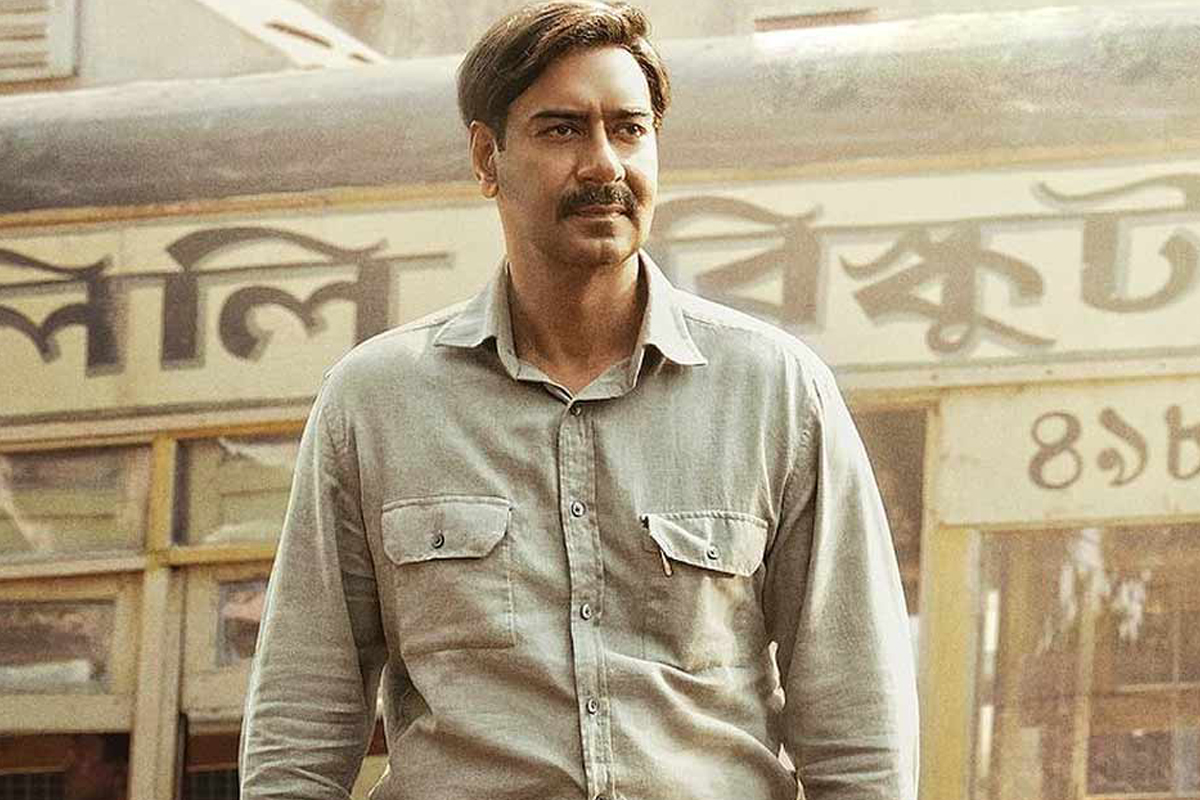‘Son of Sardaar 2’: Ajay Devgn and Mrunal Thakur’s film locks release date
The highly anticipated sequel project ‘Son of Sardaar 2’ led by Ajay Devgn and Mrunal Thakur locks a release date.
There is a lot of Calcutta in Sharma’s work, and his keen eye for period details elevates the movie into something romantic.

Sports films are almost always predictable. In the first 20 minutes, I have been able to guess how they will wind up. We all knew how Shahrukh Khan’s Chak De! India would close. Ditto with Bhaag Milkha Bhaag about the ‘Flying Sikh’, a marathon runner, or Dhoni: The Untold Story or 83 on India’s spectacular World Cup cricket victory. Amit Ravidernath Sharma’s Maidaan, now playing in theatres though hardly attracting footfalls, follows the same pattern of how an Indian football team won the gold medal in the 1962 Asian Games, defeating unruly and aggressive Korean players. At three hours long, the movie certainly did not have a substantial plot or anything significantly different to say. Maybe two hours would have been more than enough.
The story plays out mostly in Calcutta (Kolkata now after our various state governments went on a renaming spree), which brought back memories of a lovely city (lovelier people and great culture, not to forget the yummy sweets, sandesh in particular), where I grew up, went to school and college, and clinched my first job in this newspaper. I can never forget the maidan, a lush, velvety green in the heart of the city, which emerged from Englishman Job Charnock’s mid-day halt on a hot and humid August afternoon.
Advertisement
There is a lot of Calcutta in Sharma’s work, and his keen eye for period details elevates the movie into something romantic. What is much more gripping is that Maidaan is all about football, a game that every Bengali is crazy about, with clear battle lines drawn between the supporters of Mohun Bagan and East Bengal, both defending their teams with a kind of mad passion that sometimes turns into raging arguments.
Advertisement
Incredible as it may seem, one man, Syed Abdul Rahim (essayed by Ajay Devgn), lifted the spirits of what he called the India Team. He did not want it to be Bengali or Hyderabadi (another metropolis once known for football). He took the sport to unimaginable heights with his acumen and intuition, steering clear of parochialism and petty politics. Obviously, this led to resentment and anger in the Football Federation of India, some of whose members rooted for an all-Bengali team. Or, at least, a majority of the footballers should be from that state, they felt. But Rahim went around the country picking the best, and this included a Sikh and a boy from the slums.
The story, which spans from 1952 to 1962, has been penned by Saiwyn Quadras, Akash Chawla and Arunava Joy Sengupta with Quadras’s screenplay, and we see how Rahim gets together a team and trains it with all his astuteness to make it so formidable that it defeats some of the strongest sides, particularly from Korea, Thailand and Japan.
Unfortunately, while a lot of the run time is allotted to Rahim’s life on the ground, we have to be content with skimpy details about him as a husband and father. And a fine actress like Priyamani as his wife, Saira, has been completely wasted. A pity.
Also, we learn precious little about the team itself: the dashing Chuni Goswami (Amartya Ray), the lightning-fast PK Banerjee (Chaitanya Sharma), and the hardy Jarnail Singh (Davinder Singh).
The film is unevenly narrated, and including two villains—football administrator Rudranil Ghosh’s Shubhankar and Gajraj Rao’s journalist Roy Babu—looks so comical that it erodes the power and punch of Maidaan as it grapples with the ball kicked and tossed around by often livid men.
But energetic cinematography by Tushar Kanti Roy and Fyodor Lyass gets the movie flying. Devgn suits the character to a T, and his morose looks (which reminded me of Dilip Kumar) come in handy to tell a story about how a tottering team picked up the vigour and valour to kick the ball into the goalpost.
The writer is a senior film critic
Advertisement